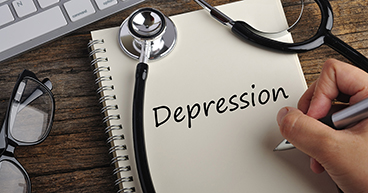
When he was treated for Hodgkin lymphoma 12 years ago, Anthony Perre, MD, Chief of the Division of Outpatient Medicine at Cancer Treatment Centers of America® (CTCA), developed side effects that would require long-term medication. “Getting radiation treatment to my neck damaged my thyroid, so I have to take thyroid medication,” he says. “And because of a drug treatment I also received, I’m at a greater risk for heart disease. So, I take heart medication. I take two pills a day, and I’m a doctor. Do you think I can remember to take my pills? No. Imagine a cancer patient who has five, six or seven pills, and pills that are critical to treat cancer. It’s not always a good situation.”
As more new cancer medications are coming out in pill form, more and more cancer patients are taking on the responsibility of administering their own drugs. According to surveys, many cancer patients, especially those who have advanced disease, prefer oral medications—those taken in pill or liquid form—rather than having to travel to a hospital or clinic for an injection or sit for a lengthy infusion. Oral medications may be more convenient, but doctors caution that doesn’t mean they are appropriate for all patients. “When we see a new patient, we go over their medications right off the bat,” says Pamela Crilley, DO, Chair of the CTCA® Department of Medical Oncology. “I would say eight times out of 10, something is not being taken. Medication adherence is a huge issue and will continue to be as more and more oral medications are developed.”
Given the option of taking an oral medication instead of an injection or infusion, patients should consider many factors. For instance:
- Oral medications may cost more. Patients should check on the cost of the medication and how much of it will be covered by insurance.
- Chemotherapy drugs may be toxic and need to be stored, handled and disposed of carefully. Some medications require patients to wear gloves while handling. Patients should consider whether they can handle these medications safely.
- Many medications have strict protocols for the timing of dosages and interactions with food and other drugs. “A lot of these targeted therapy drugs have very specific requirements, such as whether to take them with food or not,” Dr. Perre says, “or whether you can take antacids within a certain period of time. All these things are very critical to the effectiveness of the drug.”
- Patients need to be honest with their doctors about whether they are taking the drugs prescribed to them. Many chemotherapy drugs cause unpleasant side effects, such as hair loss, nausea and vomiting and diarrhea. Some patients may find it difficult to take pills they know will make them sick, but they don’t tell their doctors.
- Cancer patients don’t just take drugs to treat the cancer. In many cases, medicines or supplements are required to deal with side effects. The number of pills can be overwhelming, causing patients to lose track of when or whether they have taken their pills. “I recommend to patients that they develop a regimen for taking their medications,” Dr. Perre says. “Always in the morning or always at night. Have a pill box so you can remember if you took your pills. And associate your medications with other things, like brushing your teeth.”
Dr. Perre suggests patients talk extensively with their doctors about the advantages and disadvantages of choosing oral medications over injections or infusions. The American Cancer Society has a lengthy set of questions patients might want to consider asking their doctors.
Learn more about chemotherapy.



